TUM Think Tank
Where today's societal challenges meet tomorrow's technological excellence.
In a significant development, the European Parliament has adopted its negotiating position on the AI Act. This paves the way for discussions with EU countries in the Council. Once finalized, the AI Act will be the world's first comprehensive legislation on artificial intelligence. As discussions continue, members of our Generative AI Taskforce are providing valuable insights into the implications and potential of the AI Act.
A common point of public debate is how generative AI will change our workforce. Isabell Welpe, Chair of the Strategy and Organisation at TUM and a member of the TUM Think Tank's Generative AI Taskforce, notes:
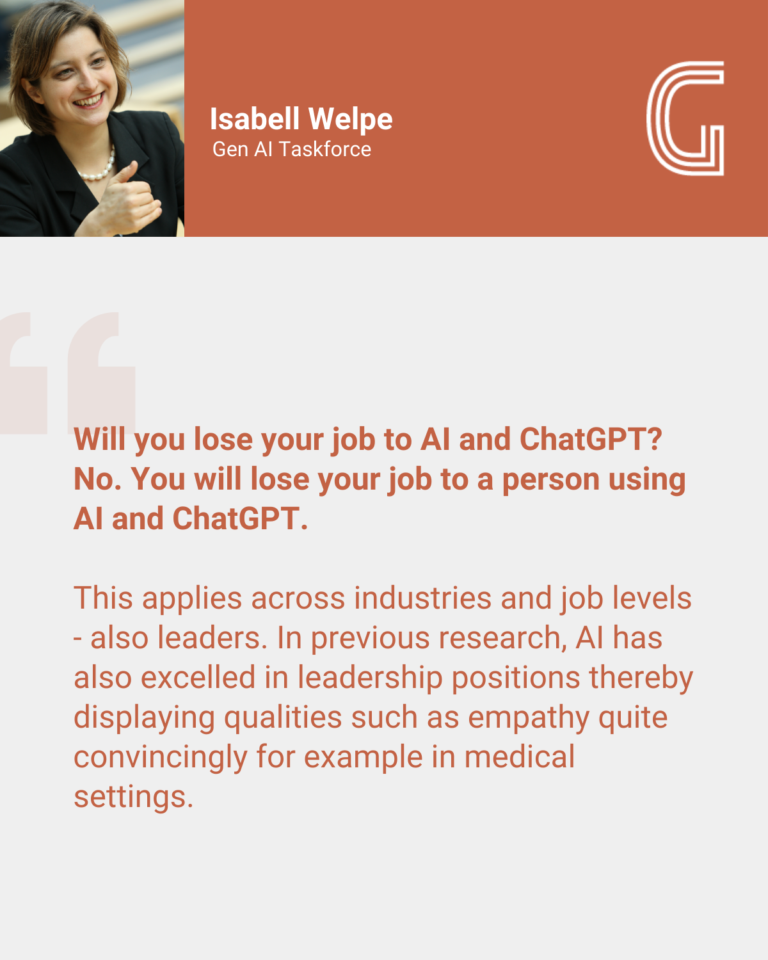
As the field advances at an unprecedented pace, regulatory frameworks are trying to keep up. Another member of the Generative AI Taskforce, Christoph Lütge, who holds the Peter Löscher Chair of Business Ethics at TUM and is also the director of the TUM Institute for Ethics in AI, outlines the challenges of regulation:
“The recent adoption of the AI Act by the European Parliament underscores the pressing need to regulate the rapidly advancing field of Artificial Intelligence. The AI Act represents the European Union's ambitious endeavor to establish a regulatory framework for AI. However, the challenge lies in striking a delicate balance between safeguarding fundamental rights, fostering ethical AI development, and avoiding any unintended stifling of innovation."
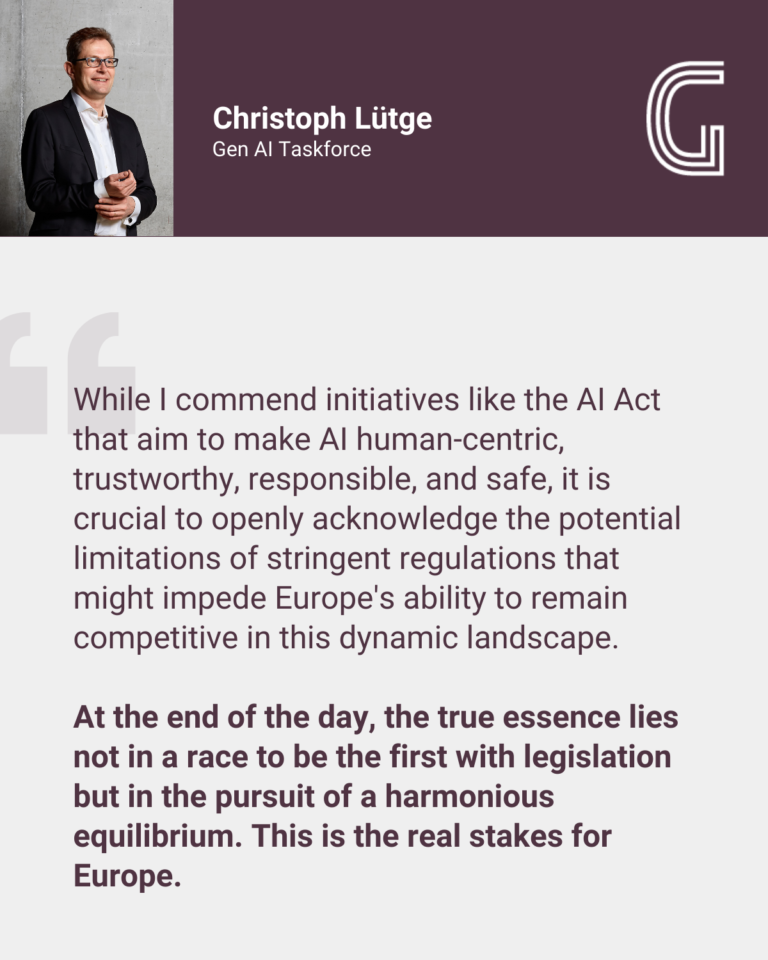
Christian Djeffal, Assistant Professor of Law, Science and Technology at TUM, shares his perspective on the details of the AI Act in a blog post, after participating in a working meeting organized by the Electronic Transactions Development Agency (ETDA) of Thailand.
He outlines his aspirations for possible improvements to the AI Act:
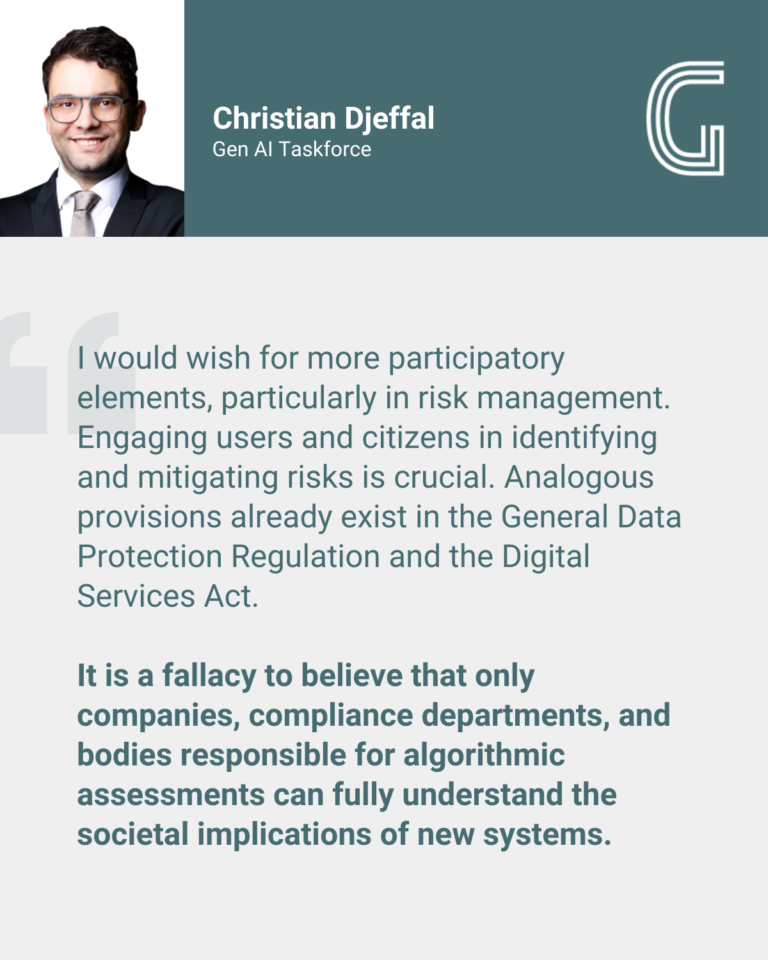
Dirk Heckmann holds the Chair for Law and Security in Digital Transformation at TUM and als serves as is co-director of the Bavarian Institute for Digital Transformation (bidt). As a member of the taskforce, he appreciates the European legislature's recognition of the urgent need to regulate AI with the world's first comprehensive legal framework for "trustworthy AI", further explaining:
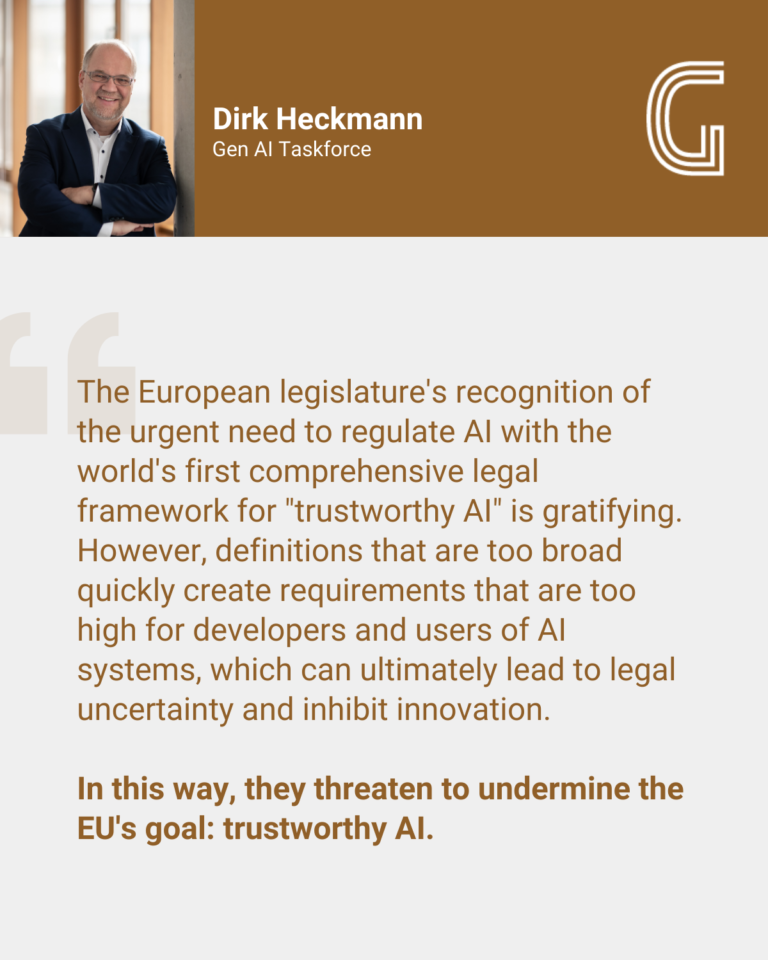
Urs Gasser, Chair for Public Policy, Governance and Innovative Technology at TUM and Dean of the TUM School of Social Sciences and Technology, was invited to write an editorial for “Science” in which he wrote:
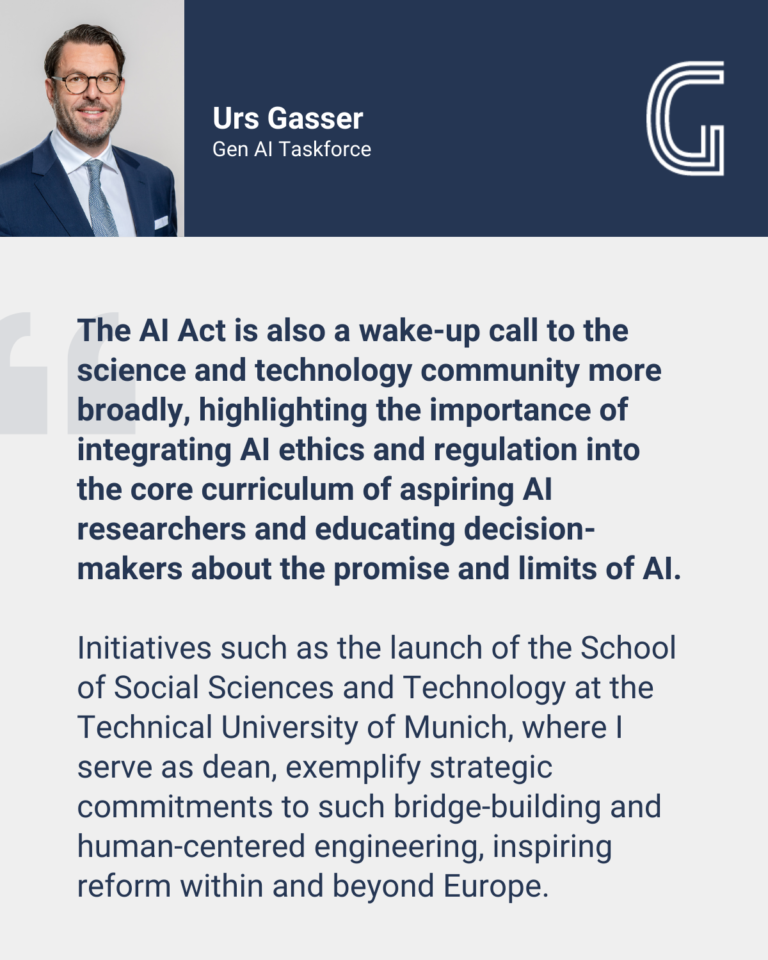
An undertaking to which the Generative AI Taskforce has devoted its work to.
TL;DR
In a significant development, the European Parliament has adopted its negotiating position on the AI Act. This paves the way for discussions with EU countries in the Council. Once finalized, the AI Act will be the world's first comprehensive legislation on artificial intelligence. As discussions continue, members of our Generative AI Taskforce are providing valuable insights into the implications and potential of the AI Act.








